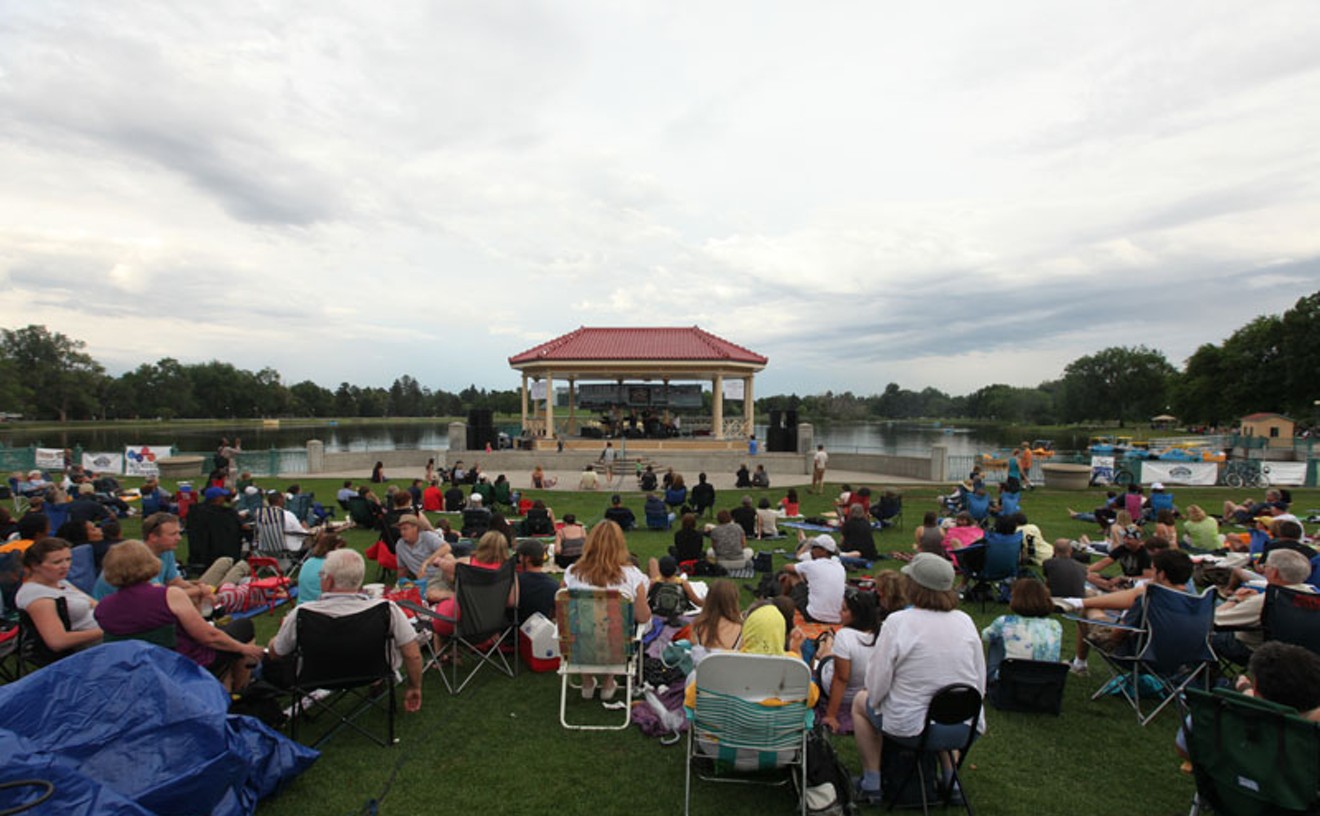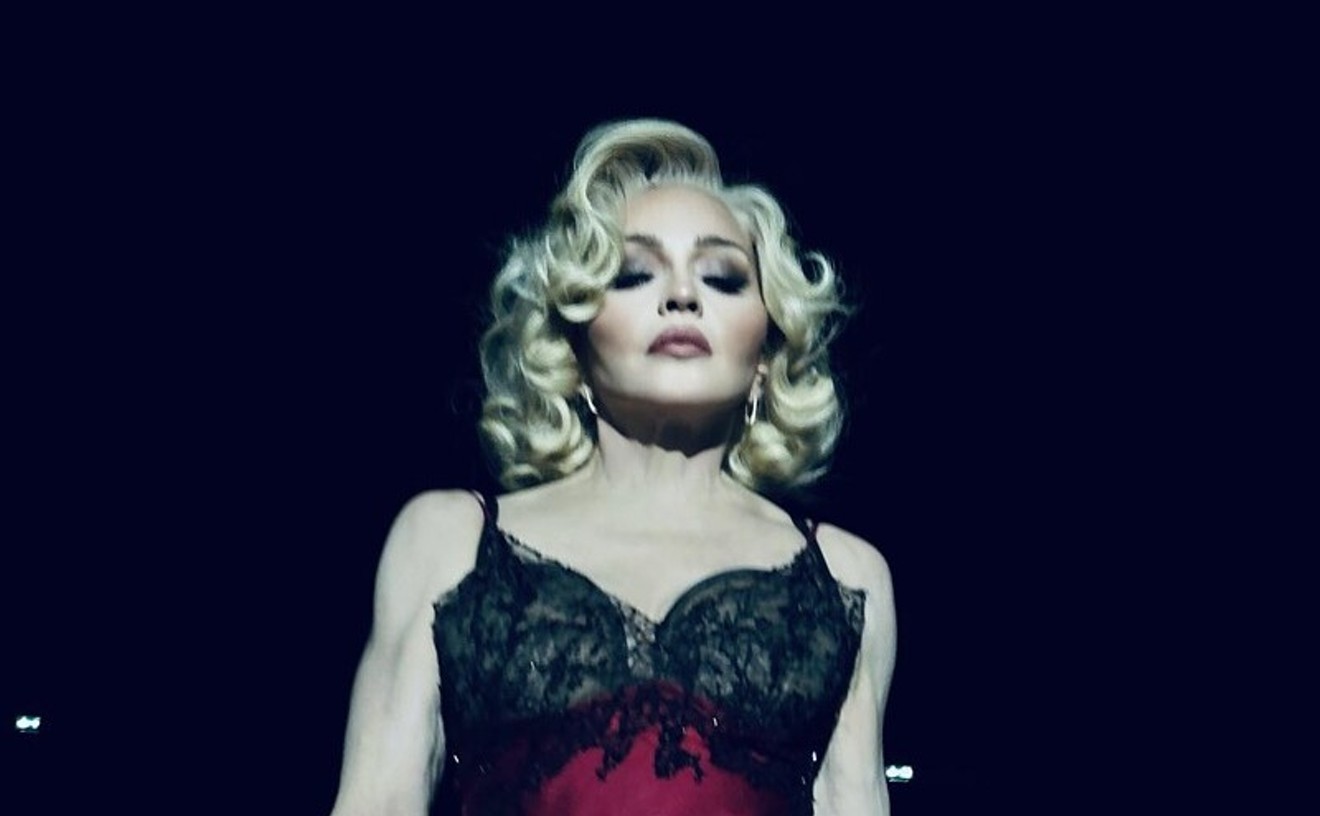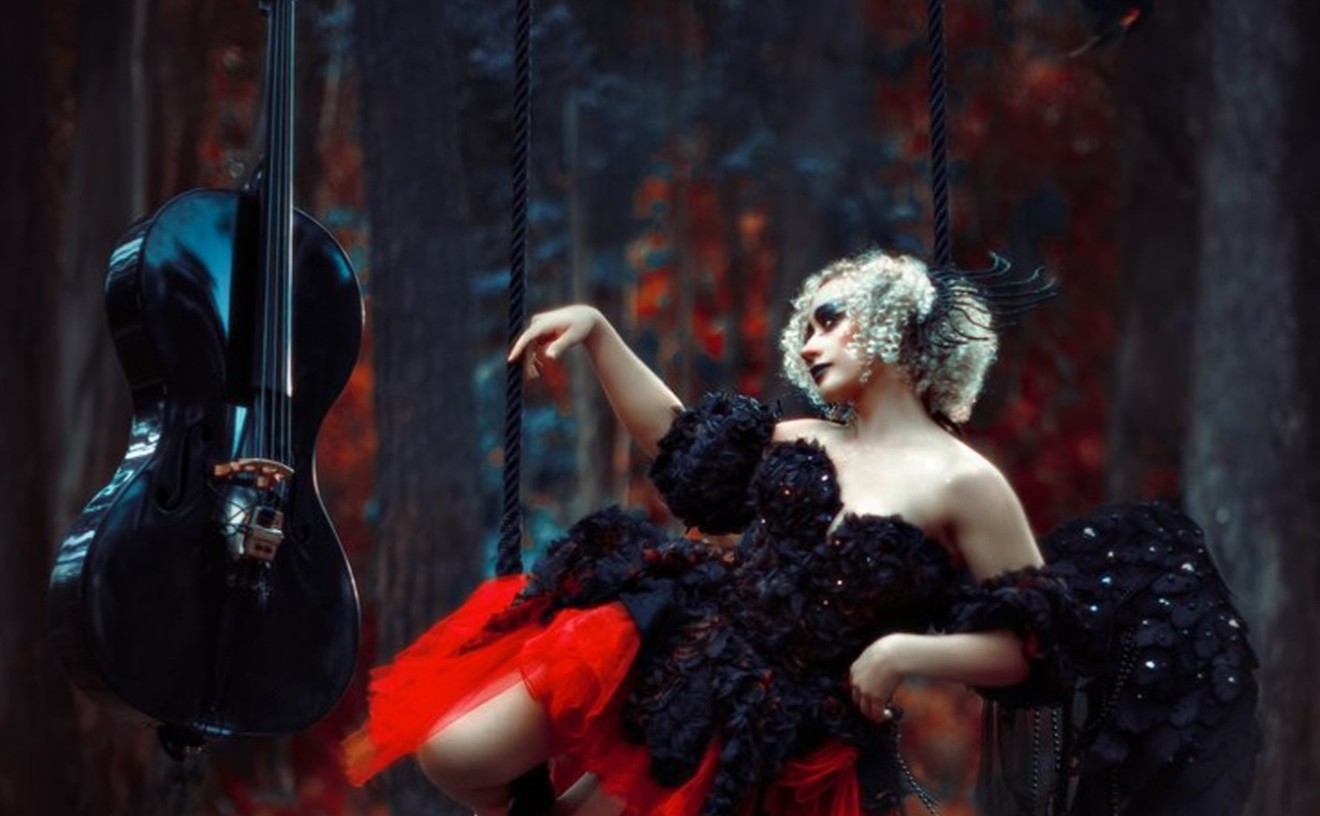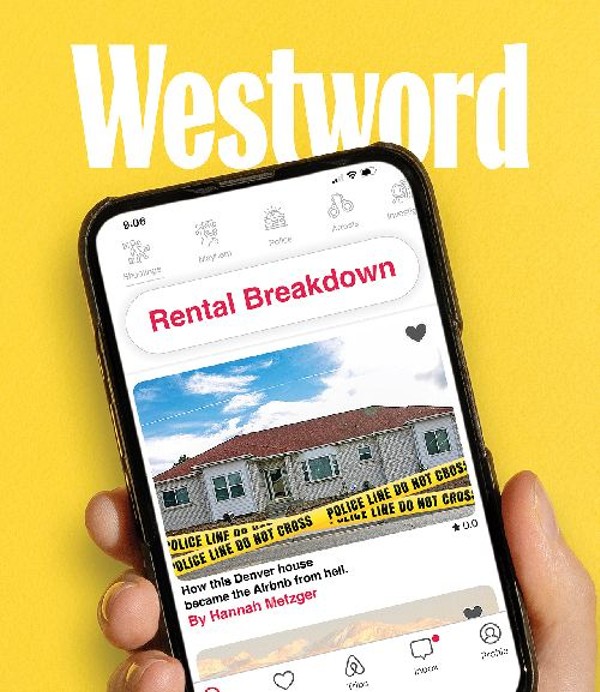Kimya Dawson, the subject of an April 17 profile and the Q&A below, isn’t a new artist. She and Adam Green were part of the Moldy Peaches, a so-called anti-folk combo whose debut CD arrived in 2001 – and since then, she’s issued several solo albums and cut a disc with another band, Antsy Pants. But most mainstream music listeners were unaware of her existence until the late 2007 release of Juno, a crowd-pleasing film about Juno MacGuff (played by Academy Award nominee Ellen Page), a pregnant teen in search of the right couple to adopt her baby. Although the Dawson tunes used by director Jason Reitman weren’t written for the film, which was issued on home video April 15, they were perfectly in tune with the lead character, seeming like musical windows into her funny/smart/acerbic soul. No wonder the film’s soundtrack became an unexpected chart-topper upon its release.
The following conversation, which took place during nap-time for Dawson’s 21-month-old daughter, vividly named Panda Delilah, leads off with the singer’s comments about balancing motherhood and creative pursuits before dovetailing into a conversation about a song from Remember That I Love You, her latest CD, whose lyrics reference a drowning baby. From there, she talks about her tremendous admiration for, of all people, actor Danny DeVito; her deep knowledge of Juno co-star Jason Bateman’s TV credits; the advocacy organizations that have tried to take ownership of the movie, including a San Diego pro-life group; the silliness of suggesting that the flick promotes unprotected teen sex; the possibility that Juno wound up with an STD; the reaction of young women to her work; the pros and cons of having her songs described as “childlike” – a topic that naturally leads to comments about her next offering, an album for children entitled Alphabutt; and her disinterest in signing with major labels whose representatives have come calling in recent months.
Mother knows best:
Westword (Michael Roberts): First off, I wanted to ask you about a couple of items I found in the news section of your website. A couple of weeks before the birth of your daughter, you wrote, “Kimya is having a baby this month, so there will be no handmade items until further notice.” What handmade items did you specialize in back then?
Kimya Dawson: I was making a lot of hand-drawn t-shirts, and I also did paintings – like, custom paintings on canvas. And I do a lot of animal tote bags.
WW: After your daughter came along, have you had time to get back into that?
KD: I did a lot. I have an Etsy store, at Etsy.com, and when I do have stuff available, I sell it there. [The store is called “The Great Crap Factory.”] But we’re on tour, and I don’t make stuff when I’m on tour.
WW: When your daughter came along, how huge a change was it for you in terms of the time you had to spend creating? Has it made scheduling more difficult? Or have you been able to balance everything more easily than you thought you might?
KD: Well, we’re still touring, and as far as creating, I’ve never scheduled songwriting. It’s always been, if something happens, and as a result, a song needs to be written, it just comes. I can never really hold them back.
WW: And if a song comes along when the baby needs changing? Or is teething?
KD: The thing is, I just write my songs in my head. I don’t write them down on paper, and I usually don’t write them with the guitar first thing. It comes as the words first. So I can sing to her as I’m doing stuff with her. Now a lot of the songs are about her or for her.
WW: So in a sense, she’s not only your muse, but she’s also become the first audience member for a lot of songs…
KD: Mmm-hmmm.
WW: I’ve been listening to a lot of your songs lately, and one that jumped out at me was “My Mom” [on 2006’s Remember That I Love You], in which you imagine your favorite baby drowning. Was that written when you were pregnant? Or before?
KD: That was before. It was a dream I had about my nephew.
WW: Now that you have a favorite baby, is that song difficult to sing?
KD: No, no. I know when I wrote it, and he’s six-years old and he’s beautiful and I love him as much now as I did then. It’s important. It’s not like I love my baby any less. She’s my child. But he and I lived at the same house from when he was nine-months old until a year ago. He’s my favorite six-year old.
WW: When you perform songs, then, it’s not as if you’re immediately transported back to the time you wrote them, and the feelings you were having then.
KD: Sometimes. But even with something like that, he’s a kid that I love more than almost anything in the universe. The family has been through so much with him – my brother [musician Akida Junglefoot Dawson] getting custody of him. He was taken away for a while. The song “Lullaby For the Taken” [on 2004’s Hidden Vagenda] is also about him. And he’s in “Being Cool” [from 2004’s My Cute Fiend Sweet Princess]; he’s Skyler. He’s a huge, huge, important part of my life, and back in those days, it was all really, really emotional. So when I sing those words, how much I love him comes out.
WW: One of the things about your work is that you face all those emotions that a lot of us tend to put aside. Do you feel that’s an important part of your songwriting?
KD: It’s an important part of my existence – my being able to function. Some people are able to put things aside, and I always bottled them up. Eventually, it would explode and just fuck me up really bad. So the way I deal now is, instead of keeping things in is to just deal with them when they’re happening.
WW: Some songwriters talk about getting out their feelings in music as being a form of therapy. Is that the case for you?
KD: Oh yeah. That’s why I started writing songs – so I could stop going to therapy (laughs).
WW: So songwriting has saved you untold thousands of dollars of doctor bills over the years?
KD: Yes! Yes!
WW: Another item on your website that jumped out me read, “On Monday 3rd December is the Hollywood premiere of Juno, so I will be trying my hardest to find, meet and befriend Danny DeVito.” Did you succeed in that goal?
KD: I’m so close. I actually have a woman who’s one of his co-stars on the sitcom he does [the FX series It’s Always Sunny in Philadelphia]. She contacted me and told me she was going to try to arrange something the last time I was in California, but he ended up going out of town. So the next time I’m in L.A., I’m supposed to drop her a line. See what we can finagle.
WW: So why do you want to meet Danny DeVito among all the stars in the Hollywood pantheon?
KD: It’s the dream team of DeVito and [Rhea] Perlman. I just love them. Love, love, love, love them. They’re so good. They’re so cute, they’re so funny, they’re so good (laughs). And he and I have the same birthday [November 17], too, so I just know we’re going to be best friends.
WW: Do you have a tour stop in L.A. this time around?
KD: Not on this one. We have friends touring with us from France, so we have a deadline for when we have to get back to Seattle so they can fly down. And we’re not going down and then up. We’re going across from Colorado to San Francisco, and then we just have time to go north.
WW: During this whole Juno explosion, I imagine you’ve gotten to meet some other Hollywood celebrities. Are there any that stand out for you? And has that been one of the more surreal parts of this whole experience?
KD: Well, it was really cool to get to meet Ellen and Michael [Cera]. I didn’t know a lot about them before, so it wasn’t like, “Holy cow!” It was more like, “You guys are good.” And Jason Bateman – ooh boy. I was just a huge fan from when I was a little girl and he was on Little House on the Prairie.
WW: That’s old-school Jason Bateman.
KD: Yeah. And I was a diehard Hogan Family fan, and Silver Spoons. All that.
WW: So the people who discovered him through Arrested Development are Johnny-come-latelies in terms of Jason Bateman fandom…
KD: (Laughs.) Yeah, yeah. But that show is phenomenal, so I’ll give it to them.
WW: Has it been strange to watch Juno become a political football in the teen-pregnancy debate? I’ve seen groups associated with the pro-life movement embrace the movie…
KD: Ooof. I got asked to play some University of San Diego pro-life festival, and I wrote back a really long e-mail to the girl. I was like, “Are you fucking kidding me? Have you heard my music?” (Laughs.) And, “Have you ever read the blogs of any of the people who worked on this movie?” They were going to show Juno and have me play! It was like, “Aaargh.” Silly, silly kids.
WW: And on the other side of the coin, you’ve got the groups upset at Juno because they think it promotes unprotected teen sex, which seems equally absurd.
KD: I don’t think it promotes it.
WW: I think they feel it promotes it because Juno isn’t ruined at the end of the movie. Maybe if she’d died a tragic death, they wouldn’t have thought it promoted it…
KD: Yeah, well, teen sex doesn’t necessarily lead to tragic death – bottom line. Sometimes it does, but sometimes adult sex leads to tragic sex, and most of the time it doesn’t. It’s just sex. You definitely need a condom, because you can get really, really sick. We don’t know: Maybe two years later, Juno tests positive for HIV. It’s not that far in advance where you would find out if she actually caught an STD. But I don’t know: I feel like Paulie Bleeker probably didn’t have herpes.
WW: He doesn’t seem like much of a herpes candidate to me.
KD: No, he doesn’t seem like a real sleeper-arounder… I do think kids need to be safe, but I don’t think the film went that far to let us know if something like that happened. And we definitely saw the repercussions of not using a condom. It just wasn’t a disease.
WW: I got a chance to see the movie about a month before it was widely released when it played the Denver Film Festival. I went with my twin daughters, who are fourteen, and of course they loved it – but the first thing they asked about when we got out of the theater was, “Do you have any other music by Kimya Dawson?” So I gave them a couple of your albums and the first Moldy Peaches CD, and they were definitely surprised when they realized how much more there was to your music than the types of songs used in the film. They ended up loving it, too. But is that a common reaction from folks – that they haven’t expected the kinds of things they found in your back catalog?
KD: Yeah. I think some people didn’t realize I talk dirty sometimes (laughs). Definitely with the Moldy Peaches stuff. Some people who discovered us through The View or through Juno and then got the album were like, “Oh! Oh! Yikes!” (Laughs.) I definitely think some people were more pleasantly surprised than others. I had people were like, “I saw Juno, got the soundtrack, and then went out and got some of your albums,” and they discovered that there was a lot of personal stuff on there, and stuff dealing with recovery. And they were like, “Oh my God! I hated that!” (Laughs.)
WW: Have you also gotten a lot of e-mails – particularly, I imagine, from young women – who see you as a kindred spirit?
KD: Always. Always.
WW: I’m sure that predated Juno.
KD: Yeah. That’s one of the things that, from the beginning, saved me – being a young woman who’s struggling… Well, not as young as they are. I was a little older when I started writing songs. But just being a woman who is struggling and suffering and lonely and then making songs and then having this kindred spirits contact me and say, “Wow. Me, too.” And me saying, “No way. It’s awesome that we’re in this together.”
WW: A few years ago, I interviewed Jonathan Richman, another artist whose work is frequently described as “childlike” – and when I asked him what he thought about that word, his response was definitely pretty chilly. [The Richman interview, from 1995, can be accessed here.] What do you feel like when you hear that description applied to your work? Does it strike you as positive?
KD: Yeah. I know that my guitar playing is very simple, and the word “childlike” for me… The kids I know are all really raw and honest and pure. And I think those are very strong traits to possess.
WW: I understand you have a disc for children coming out later this year.
KD: In September.
WW: How would you describe the songs on it? Do they have an instructional quality? Or are they more just for fun, but made with kids in mind?
KD: Some of them are more for fun. Some of them are definitely goofy little minute-long songs. Other ones are more serious. There are songs about poverty and privilege and songs about community action and songs about sustainable living. My songs mention breast-feeding and co-sleeping and attachment parenting, but all in a simple way. It’s still about the stuff that’s important to me, and stuff that I think is important to kids. Caring. Body image. But just done without saying “fuck” as much.
WW: As a parent, one of the things I like least about a lot of the music made for children that I’ve heard is that it tends to condescend to them. From that description, it sounds as if you see kids as intelligent and bright and you don’t sing down to them.
KD: That’s what I’ve always felt. Kids are individual human beings, you know. They’re just at a different point of their path than maybe us older folk are. But they’re no lesser people than we are. In fact, they may be mightier. We have to give them the respect they deserve.
WW: Since the success of the Juno soundtrack, have you had any major labels knocking on your door?
KD: I’ve had a couple. I looked through the peephole and didn’t answer (laughs).
WW: You’ve anticipated my next question. Do you like the idea of being on K Records, which is for you a hometown label?
KD: That’s my family. That’s my community and my family and I trust them and I love them and they’re my friends. I’m very skeptical of people who are “in the business” of music. I’m totally happy where I am. I can’t imagine why I would go anywhere else.











